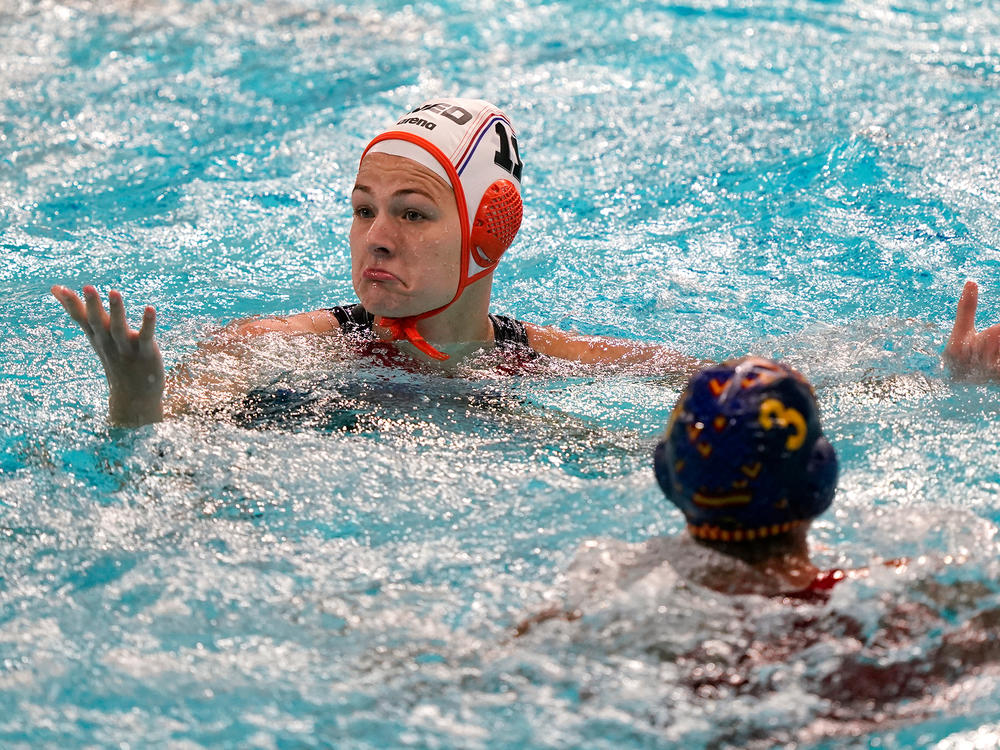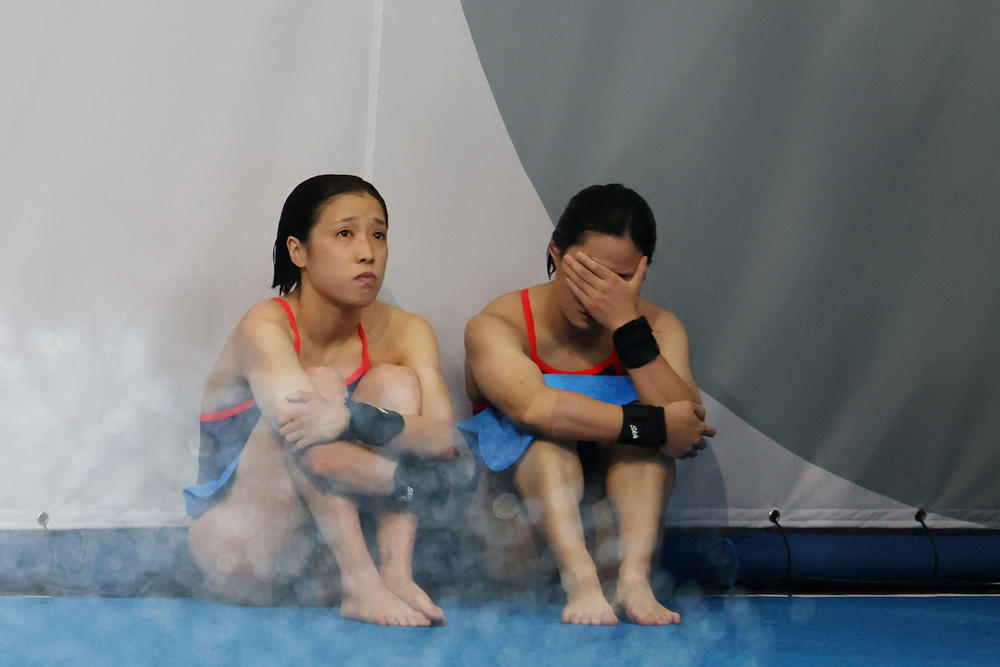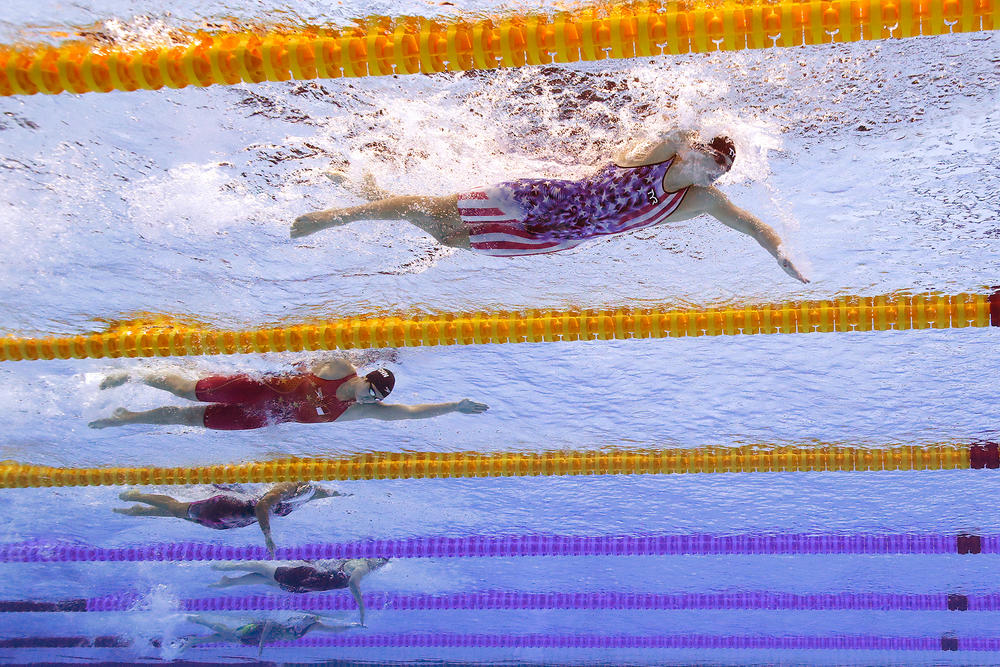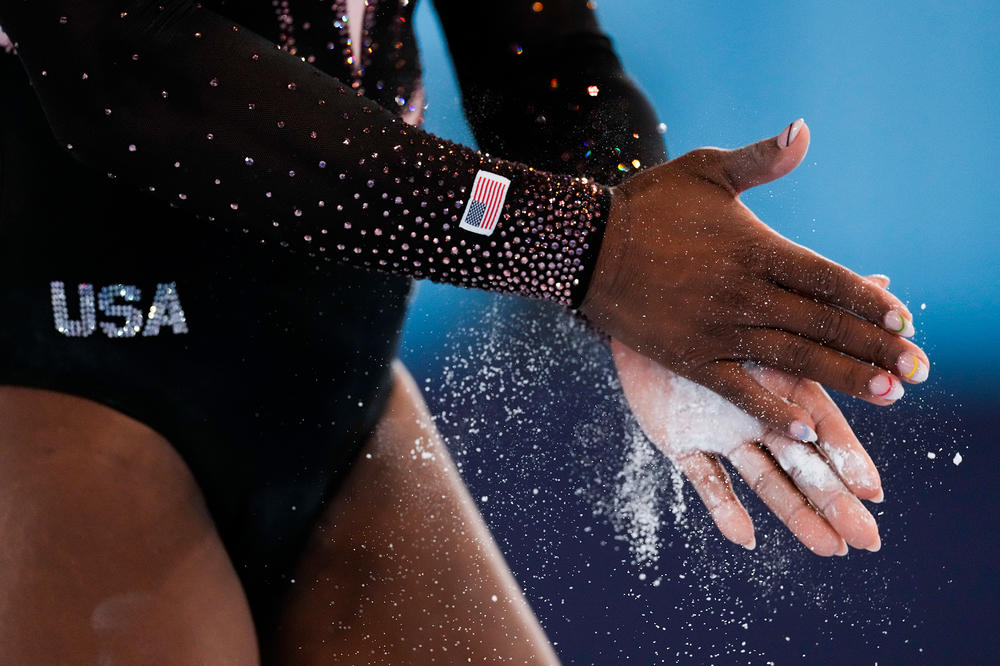Section Branding
Header Content
We Answered Extremely Random Questions People Had About The Olympics
Primary Content
See, the thing about the Summer Olympics is that it comes every four years. And that's a long enough span of time for us to forget the things we thought we knew. ("Tell me again, how they figure out the order of countries in the parade of nations.")
So, as you sit on your couch cheering on sports you didn't think you cared about during the Tokyo Games, we're here to answer all those random questions that keep popping up in your brain.
We'll keep the answers short — like 50 words or less — so you can skim this list during those commercial breaks. (And if you have more, tweet it to us with the hashtag #NPRanswers and we'll keep growing this list).
Diving
Why do divers immediately hit the shower as soon as they're out of the pool?
The pool's cold and can cause their muscles to cramp. The warm water of the shower helps keep the muscles loose. That's also why you're increasingly seeing divers sitting in a hot tub between dives.
What's with those tiny towels?
They're called shammies and help them dry faster. Why do they need to dry faster? So they're not cold. Also, when you're wet, you're slippery. And you don't want to slip and lose your grip when you're doing, say, a knee-tuck.
Swimming
Why do swimmers slap themselves before a race?
It's a warm-up technique. You slap yourself to get the blood flowing. It's fine. It's part of their pre-race ritual. (It's not fine when your judo coach slaps you — even when you say it's part of your ritual.)
Why do they wear those big puffy coats?
To warm themselves up. Heat helps relax the muscles so they don't cramp.
How are lanes assigned in Olympic swimming?
A swimmer ends up in a particular lane depending on their qualifying time. The fastest gets the center lane. Lanes 3 and 5 go to the next fastest. That, according to the explanation here, is why you'll often find the gold-medal favorite in Lane 4.
Gymnastics
Why do gymnasts rub that white powder on their hands before a routine?
It's chalk. It absorbs the sweat off of their hands, helps them keep a better grip on, say, the parallel bars, and decreases the friction between the hands and the bars.
I thought the score to shoot for in gymnastics is the 'perfect 10.' I'm seeing scores like 15.400. Explain.
In the olden times, the maximum score was a 10. The rules have changed. Now, you're scored on difficulty (how hard the thing you're trying to do is) and execution (how well you did that hard thing). Your final score totals the two.
What's stumping you? Tweet us your question with the hashtag #NPRanswers and we'll get you an explanation.
Copyright 2021 NPR. To see more, visit https://www.npr.org.




